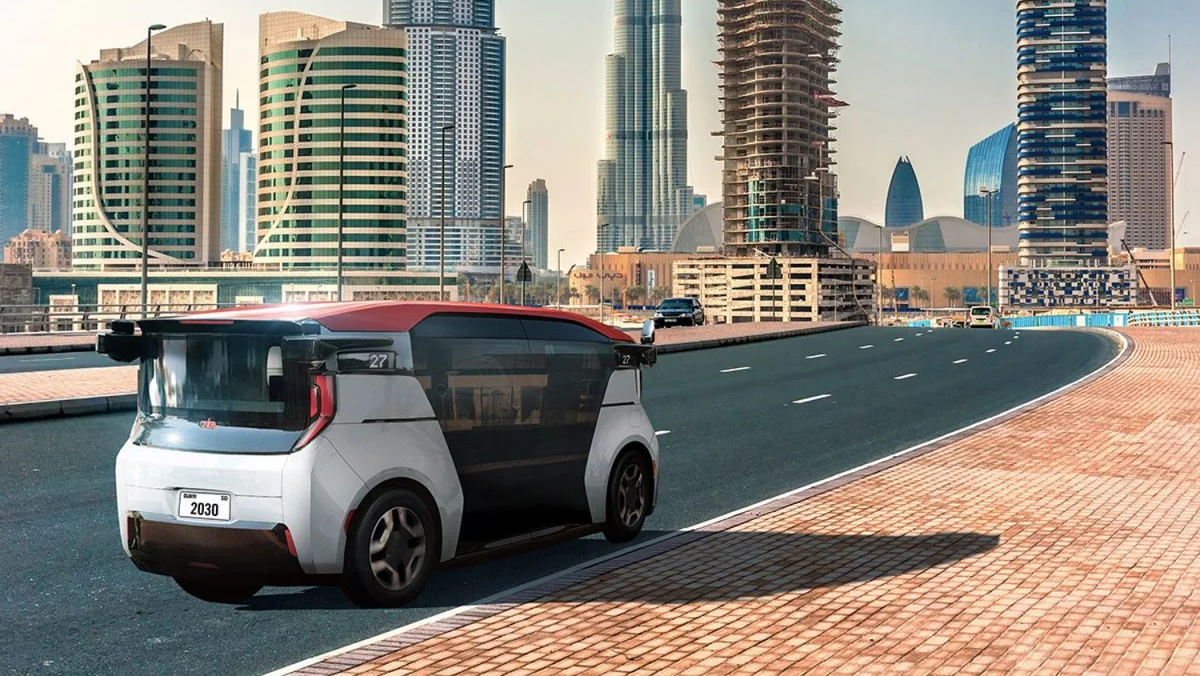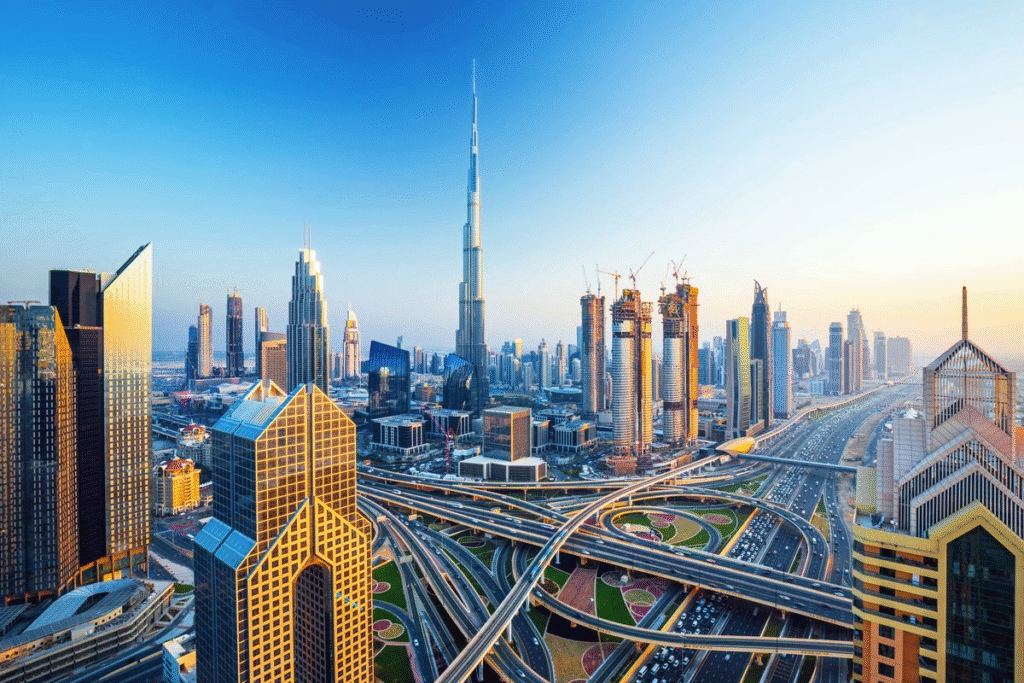
Dubai, the gleaming jewel of the Middle East, has long been known for its breathtaking skyscrapers, luxury lifestyle, and futuristic vision. But beyond the shining glass towers lies a far more ambitious dream: transforming Dubai into a living model for the smart cities of tomorrow.
As global urban populations explode, cities everywhere are struggling with congestion, pollution, and overstretched resources. Dubai, however, is showing the world how to break this cycle with strategic infrastructure investment and cutting-edge technology. Its approach could become the master plan for how other cities might evolve in the coming decades.

Dubai’s infrastructure transformation did not happen overnight. Since the 1990s, the city has invested billions of dollars in world-class roads, airports, ports, and public transport systems. Its world-renowned metro network, opened in 2009, was one of the first signals that Dubai was thinking bigger than just cars and highways.
Today, Dubai’s Roads and Transport Authority (RTA) continues to expand the metro and tram lines, with a long-term vision of integrating them with autonomous buses and last-mile transport options. In fact, the RTA has set a target for 25% of Dubai’s transportation to be autonomous by 2030 — a bold move toward sustainable, AI-driven mobility.
The Dubai International Airport and Al Maktoum International Airport (Dubai World Central) also play a key role. With state-of-the-art cargo handling, robotic logistics systems, and facial recognition security, these facilities stand at the cutting edge of airport infrastructure.
All these elements come together in a coordinated network that supports Dubai’s smart city goals: safe, sustainable, seamless, and high-tech.
No smart city can function without a smart government. That is why Dubai launched its ambitious Smart Dubai initiative in 2014. The program aims to digitize all government services, making them paperless and accessible online or via mobile apps.
Today, residents can pay bills, apply for permits, renew car registrations, or even file legal documents online, cutting out the need for paperwork and physical visits. According to official data, over 90% of Dubai’s government transactions are now handled digitally.
Dubai has also pioneered the use of blockchain technology to improve transparency and security in public services. The Dubai Blockchain Strategy envisions moving all governmental documents to blockchain platforms, saving time, money, and preventing fraud.
This digital backbone is the lifeline of a smart city, enabling data sharing between departments and better resource allocation across transportation, energy, healthcare, and emergency services.
One of the biggest challenges facing modern cities is sustainability. Dubai, once reliant on oil, is now investing heavily in renewable energy, energy-efficient buildings, and green public spaces.
The Mohammed bin Rashid Al Maktoum Solar Park is one of the largest solar parks in the world, targeting 5,000 MW of clean energy by 2030. Meanwhile, Dubai’s Green Building Regulations push developers to design energy-efficient, water-saving buildings that reduce carbon emissions.
At the same time, projects like the Dubai Urban Master Plan 2040 aim to increase green areas by 60%, creating more parks and open spaces for residents. These steps will help Dubai handle the challenges of climate change, heat, and water scarcity while keeping the city livable and attractive.
What makes Dubai’s approach unique is that it acts as a giant “testbed” for emerging technologies. From self-driving taxis to drone delivery services, Dubai has created regulations and trial programs to encourage innovation.
For example, the Dubai Future Foundation hosts events like the Dubai Future Accelerators, inviting global startups to pilot their technologies in a real-world urban environment. This openness to experimentation speeds up the adoption of smart solutions.
Additionally, 5G connectivity is rolling out across the city, providing the backbone for data-heavy services like telemedicine, IoT-enabled waste collection, and smart traffic systems. These tools could transform how cities everywhere manage resources and improve the quality of life for their people.

So, what can other cities learn from Dubai? First, having a clear and consistent long-term vision is essential. Dubai’s leaders have mapped out where they want the city to be by 2030 and 2040 and are sticking to that path.
Second, the willingness to invest big and early has paid off. Dubai’s massive infrastructure spending may have seemed risky at first, but it created the conditions for growth, tourism, and a knowledge-based economy.
Third, partnership with the private sector is vital. Many of Dubai’s flagship smart projects have been delivered through public-private partnerships (PPPs), combining government leadership with private innovation.
Lastly, Dubai’s focus on digital government is a powerful lesson. Digitizing services frees up time, cuts costs, and builds citizen trust — all cornerstones of a smart city.
Dubai’s infrastructure journey is far from over. With Expo City Dubai, futuristic districts like Dubai South, and ongoing investments in AI, robotics, and green tech, the city is only accelerating its smart transformation.
As nations search for ways to house, transport, and sustain billions of urban residents, Dubai’s blueprint could become a gold standard. It shows that by combining bold leadership, strategic planning, and technological innovation, a city can overcome challenges and thrive in the 21st century.
If Dubai stays on its path, it may soon stand as the ultimate example of how to build not just a modern city — but a smart city ready for the challenges of the future.
Read More:- Deyaar’s Latest Announcement Shakes Up the UAE Property Market
